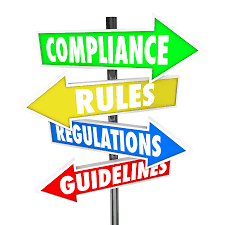In today’s global economy, international trade plays a vital role in driving economic growth and prosperity. However, with the increasing interconnectedness of markets, comes the need for strict compliance with trade regulations and laws. Companies engaging in cross-border trade must navigate a complex landscape of regulations to ensure they remain compliant and avoid costly penalties.
The Importance of Trade Compliance
Trade compliance refers to the adherence to laws and regulations governing the import and export of goods and services. Failure to comply with these regulations can result in severe consequences, including fines, seizure of goods, and damage to a company’s reputation. Trade compliance is particularly crucial in industries such as technology, where sensitive information and intellectual property are often at risk.
Key Regulations to Consider
Export Controls
Export controls restrict the export of certain goods and technologies that could pose a threat to national security or be used for illegal purposes. Companies must obtain the necessary licenses and authorizations before exporting controlled items to ensure compliance with export control laws.
Sanctions and Embargoes
Sanctions and embargoes are measures imposed by governments to restrict trade with specific countries or entities. Companies must be aware of and comply with these restrictions to avoid violating international trade laws.
Customs Compliance
Customs compliance involves adhering to the rules and regulations set by customs authorities when importing or exporting goods. Companies must accurately declare the value and classification of goods, as well as pay the required duties and taxes to ensure compliance with customs laws.
Challenges of Trade Compliance in the Tech Industry
The tech industry faces unique challenges when it comes to trade compliance, due to the rapid pace of innovation and the global nature of the industry. Companies must navigate a complex web of regulations governing the export of sensitive technologies and intellectual property, while also ensuring data security and privacy compliance.
Data Security and Privacy
Companies in the tech industry must comply with data security and privacy laws when transferring data across borders. Failure to comply with these regulations can result in significant financial and reputational damage for tech companies.
Intellectual Property Rights
Protecting intellectual property rights is crucial for tech companies, as they often rely on proprietary technologies and innovations to stay ahead of the competition. Companies must ensure they have the necessary safeguards in place to protect their intellectual property when engaging in international trade.
Best Practices for Ensuring Trade Compliance
Establish a Trade Compliance Program
Companies should develop a comprehensive trade compliance program that includes policies, procedures, and training to ensure all employees understand their responsibilities when it comes to trade compliance.
Conduct Regular Audits and Risk Assessments
Regular audits and risk assessments can help companies identify any potential areas of non-compliance and take corrective actions before issues arise. Companies should also stay up-to-date on changes in trade regulations to ensure they remain compliant.
Invest in Technology Solutions
Technology solutions such as trade compliance software can help companies streamline their compliance processes, reduce manual errors, and improve overall efficiency. Investing in technology solutions can also help companies better manage their trade compliance risks.
Conclusion
International trade compliance and regulations present unique challenges for companies in the tech industry. By understanding the key regulations, challenges, and best practices for ensuring compliance, tech companies can navigate the complex landscape of international trade and grow their global operations successfully.
References
US Department of Commerce – Bureau of Industry and Security
World Trade Organization
International Trade Administration

